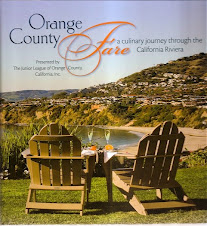The healing properties of Chicken Noodle Soup are not an old wives’ tale! Researchers at Nebraska Medical Center set out to determine which components of the soup were cold-fighters, using samples of chicken and a portion of each of the vegetables, as reported in the October 2000 journal of the American College of Chest Physicians. The results of the study demonstrated that “a variety of soup preparations…presented evidence that chicken soup might have an anti-inflammatory activity.”
However, the sum is greater than its parts. “Pureed carrots or other vegetables are not recommended as a remedy while chicken soup is.” Dr. Douglas Hoffman recommends that you will feel “a whole lot better if you stay well-hydrated and keep the calories flowing in. Chicken soup is arguably one of the best things you can eat when you are ill with the cold or flu. One simple meal provides water, electrolytes, calories, and plenty of nutrients.” The Egyptian Jewish physician, Moshe ben Maimonides, recommended chicken soup for respiratory tract symptoms back in the 12th century which were, in turn, based on earlier Greek writings.
Love in a Bowl: Chicken Noodle Soup
3/4 pound boneless skinless chicken breasts (approx. 3 medium breasts) cut into 1/2 inch pieces
2 medium stalks celery, sliced
2 medium carrots, sliced
1 medium onion, chopped
2-4 cloves garlic, finely chopped
4 (14.5 ounce) cans reduced-sodium chicken broth
1 cup parsnips
1 teaspoon dried parsley
1 teaspoon dried thyme
1 bay leaf
1 cup uncooked whole-wheat rotini (or favorite pasta)
Bring all ingredients except pasta to boil, stirring occasionally. Stir in pasta and return to boil. Reduce heat and cook uncovered for 10-15 minutes, until pasta and vegetables are tender. Makes 8, 12-ounce servings.
Food Fact! Garlic (Allium sativum) has antibacterial properties and helps detoxify the body. The story of garlic’s role in human history has filled countless books on health. Dioscorides wrote of garlic’s ability to “clear the arteries” as far back as the first century AD. The famous microbiologist, Louis Pasteur, performed some of the original studies proving garlic could kill bacteria. Garlic was called “Russian penicillin” during World War II because, after running out of antibiotics, the Russian government turned to this ancient treatment for its soldiers. After World War II, Sandoz Pharmaceuticals manufactured a garlic compound for intestinal spasms, and the Van Patten Company produced another for lowering blood pressure. In 2001, a 12-week, double-blind, placebo-controlled trial provided meaningful evidence that garlic might treat or prevent colds. Results showed that participants receiving garlic were almost two-thirds less likely to catch cold. Even better, participants in the garlic group who did catch cold recovered about one day faster.











No comments:
Post a Comment